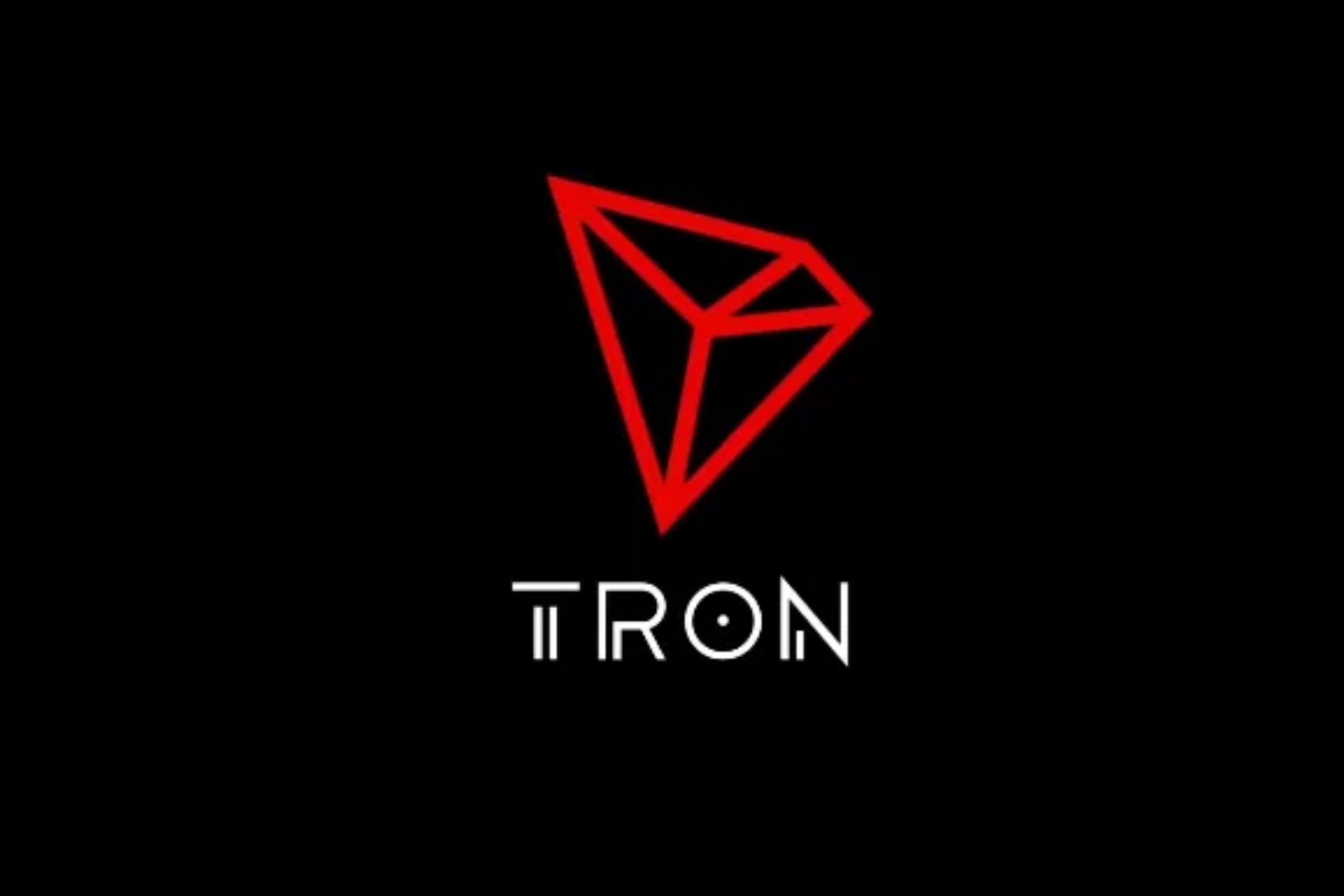Editor's Note: This article comes fromDeep tide TechFlow (ID: Tech-Flow)Editor's Note: This article comes from
Deep tide TechFlow (ID: Tech-Flow)
Deep tide TechFlow (ID: Tech-Flow)
, Author: Apeso, reprinted by Odaily with authorization.
Those who have deep desires have shallow secrets.
—— "Zhuangzi The Great Master"
Straight to the point, the author believes that Filecoin is prone to collapse in the short term and difficult to land in the long run.
Restricted by the mining machines that have been sold and the expectation that the mainnet will be delayed for two years, Filecoin has been abandoned by early believers and has become a game for a small number of consortiums.
In addition, the application of IPFS by major manufacturers such as Huawei and JD.com will swallow up the market of FIlecoin.
In addition, due to the content control of the Chinese government, Filecoin, which uses decentralized storage as an external gimmick, will face the possibility of being blocked, and the payer will be the Filecoin mines/pools in China.
After the Filecoin hype, it will eventually leave a lot of bones.
secondary title
Can Filecoin land?
Before discussing Filecoin, first ask, what is Filecoin?
In fact, many people confuse Filecoin with IPFS.
IPFS is the Interplanetary File System, a protocol network.
Since its release in January 2015, IPFS has been running smoothly for four years. At present, there are hundreds of applications on IPFS and millions of nodes around the world. Enterprises such as Google and JD.com have begun to use IPFS technology.
According to a disclosed information, as of June 2017, more than 5 billion unique content files have been stored on the IPFS network, and the data continues to grow.
Filecoin is a blockchain project. Since the announcement of the launch of the mainnet in June 2018, it has experienced several delays. And performance has been criticized.
IPFS is equivalent to a road with people coming and going, while Filecoin is a panting horse that has not yet been born.
IPFS technology has landed, but Filecoin has yet to be tested. This is the difference between the two.
And the hot publicity we see now is basically around Filecoin.
Unlike other encryption projects that hype concepts, a major innovation of Filecoin is that it is bound to entities. Before the mainnet goes online, speculators can hype a wave of mining machines or cloud computing power. A public data is that the sales of several top manufacturers even exceeded 1 billion yuan.
As we all know, with Filecoin, a group of rich people were born, but can Filecoin, which has not yet been launched, support such a large wealth?
The biggest application of Filecoin is cloud storage. In terms of storage function, Filecoin is no different from Amazon and Alibaba Cloud, and the latter has more significant scale and technical cost advantages.
However, the advantages of Filecoin, namely, data cannot be tampered with, privacy, etc., but these are the biggest obstacles to the development of Filecoin under the existing policies. This part will be expanded in detail in the next chapter.
Recently (July 3), JD.com announced that it has deployed IPFS.
JD Wireless Treasure is a router with NAS (network attached storage) function. It has a technology monetization system based on P2P, which needs to be combined with IPFS.
All in all, wireless treasure is to use users' idle bandwidth resources to "mining". The person in charge of Wireless Treasure also said that some valuable files and data are distributed and cached on Wireless Treasure, and some valuable products are realized. "Combined with IPFS technology, the total storage cost is very low, but the data The value is very high."
The problem that most Filecoin supporters don't realize is that these big Internet companies are users of IPFS and competitors of Filecoin.
Readers who are familiar with Filecoin should be aware that what JD Wireless Treasure has to do is actually very similar to the application of Filecoin.
Moreover, compared to Filecoin's main network that has not been launched for a long time, JD has three major advantages: e-commerce mall traffic, JD Golden Bean isolation risk, and technical cost advantages.
What Filecoin can do, the big companies have already started to do it, and what the big companies can’t do is where Filecoin can show its strength, but there are risks and traps.
The core application scenario of Filecoin is commercial storage customers, not to mention whether the performance can keep up with the initial launch, at least in terms of the difficulty and efficiency of promotion, obviously, these Internet companies have more opportunities.
For now, for a long time after the mainnet goes live, the currency price performance and liquidity level of FIL are not enough to support a healthy storage market.
secondary title
Filecoin's Copyright Crisis
When new users open Filecoin-related applications and forums, they may not be attracted by the simple pages.
The IPFS Chinese community IPFS.GUIDE is flooded with all kinds of pirated movies, and the number of users is pitifully small.
IPFS.GUIDE was launched in March 2018. It is said to be the first Chinese IPFS application in China and has saved thousands of small videos.
Some people on the forum said that if the speed can still be maintained after the number of people increases, it is only a matter of time before (the forum) replaces Baidu Cloud Disk as the next resource distribution.
Some people also expressed the same concerns as me: Will it be walled off?
The website's IP address is located in China, and it is easy to back up without an operational ICP. The official reply is that it will be changed overseas soon.
The website is overseas, but the actual controller is in China, and there are many such cases involved.
Dtube is an IPFS-based video application. It is a decentralized video playback platform built on Steem. Videos uploaded by users are stored through the IPFS protocol.
Open the Dtube page, which is almost the same video website as YouTube, but the difference is that regardless of video content or traffic, Dtube and Youtube are not of the same order of magnitude: there are no comments, no likes, and the number of subscriptions is basically only single digits.
Since 2020, YouTube has begun to remove cryptocurrency-related content in large numbers. And Dtube is considered to replace YouTube, but the traffic is too small.
You may say that these have nothing to do with Filecoin, but these IPFS applications will actually become Filecoin applications, and rely on FIL to motivate their use.
All in all, the infrastructure related to Filecoin is very early, lacks users, and is full of pirated information.
However, pirated files may become copyright freedom among Filecoin supporters. For example, Juan, the founder of IPFS, wrote a script in 2018 to download YouTube videos and upload them to the IPFS network.
Believers of Filecoin are trying to use distributed networks to restore the glory of P2P websites. Is this possible?
Technically, a distributed network reduces the attack surface for censorship. Compared with the HTTP protocol, IPFS realizes the permanent storage of information, which cannot be tampered with and deleted, and resource sharing.
At an operational level, this is almost no longer possible.
The development of Xunlei is inseparable from the weak copyright awareness of the early Internet. Today, there is no such environment for growth. Subject to increasingly sophisticated copyright laws and content controls, these have gradually declined.
In 2006, after eMule incurred a copyright lawsuit, it chose to pay USD 30 million in compensation and stop further development. Later, eMule founder Jed McCaleb established Mt.Gox and Ripple.
In December 2013, Sohu, Youku, Tencent Video, and LeTV formed the latest anti-piracy alliance, standing at the highest point of morality, and held a huge press conference to denounce Kuaibo's infringement in a high-profile manner. In April of the following year, Kuaibo announced that it would shut down the server.
According to Bloomberg News, EU police recently destroyed a TV and movie streaming network that supported cryptocurrency payments, involving more than 2 million users, and arrested 11 suspects from Spain, Denmark, Sweden and other places.
Domestically, the founder of station D was recently arrested on charges of copyright infringement.
At present, the main reason why the IPFS content platform has not been sued is that the scale is too small, and once it develops, someone will have to pay for it.
But in terms of decentralized cloud storage, Filecoin still has its own advantages.
According to Jiang Zhuoer from LeBit Mining Pool, the freedom of information in decentralized storage is a continuation of the currency freedom of Bitcoin and the freedom of equity in ETH, an important and strong demand.
But content storage just means stricter content control.
secondary title
Policy Risks of Filecoin
The biggest risk of Filecoin is policy risk.
According to the Filecoin white paper, Filecoin has two markets, the storage market and the retrieval market, which are equivalent to two decentralized exchanges. Among them, there is no entity to manage the exchange, the transaction is transparent, and anyone can participate anonymously.
As a distributed storage network, Filecoin has the characteristics of anonymity and privacy protection. This is a great convenience for gray areas such as yellow industries.
Filecoin cannot control and supervise user behavior, which is a huge regulatory problem for governments of all countries.
On the node map of the Filecoin browser, the brightest and densest area is China."In June of this year, two Chinese youths were arrested for "picking quarrels and provoking troubles" for archiving deleted articles on Github."。
If someone wants to store files on the Filecoin or IPFS network in the future, the network disk management regulations will be a headache.
In January 2018, Apple announced that the iCloud service in Mainland China would be transferred to Guizhou on the Cloud. According to China's "Network Security Law", judicial organs and national security organs may require network operators to provide
Technical Support and Assistance
Will Filecoin be like iCloud in the future?
Not only local regulation, but how does the Chinese government deal with the situation of "the storage party is abroad and the user is at home"? These are commonplace scenarios on IPFS and Filecoin.
Previously, in response to Spanish government censorship, the Catalan government used IPFS to upload previously banned websites and make them available to the public.
As the global situation is becoming increasingly tense, the exchange and supervision of foreign information will become increasingly strict. Tiktok may be a good example.
Once an accident occurs in Filecoin, someone will always pay for it. However, due to the anonymity and decentralization of the blockchain, it is difficult to trace back to the publisher of the document, and it is likely that the physical mines in China will be responsible for this.
Filecoin miner nodes involve data transmission, content distribution, etc., so the following qualifications are required: IDC (Internet Data Center Service), CDN (Content Distribution Network Service), ISP (Internet Access Service Service), IP VPN (Internet Virtual Private Network Service) wait.
Taking CDN as an example, CDN service is a content distribution network that uses caching. Users can obtain the required content nearby, reduce network congestion, and improve user access response speed and hit rate. The most famous use of CDN before is Kuaibo.
Except for a few leading mines, most Filecoin mines/pools do not have the above qualifications, and some even claim that they have placed their mines overseas.
Once a storage accident occurs, these domestic mine pools will face high costs.
For the above, the rebuttal given by Filecoin supporters is: technology is not guilty. Science and technology go first, followed by law.
The last one who mentioned the innocence of technology was Kuaibo. On September 24, 2014, Kuaibo was prosecuted by the Beijing Municipal Public Security Bureau for "suspecting the case of disseminating obscene materials for profit".
Some people say that the landing of Filecoin will inevitably be accompanied by the emergence of a large number of applications and service providers. Ordinary users who want to store files in Filecoin need to go through intermediate service providers. As long as the supervision starts from the application layer and supervises the service providers, this is also a feasible content control scheme. "Whoever owns the node is responsible, and whoever distributes it is responsible."
In this regard, the official also made a reply.
Someone asked the Filecoin official: How does the Filecoin network handle content deletion requests? (e.g. child pornography) If I am a storage provider, what are my responsibilities here? "
The official response stated that the network cannot delete files on participants' computers, however, they are opening up a set of tools to help users control the type of data they are willing to store off their machines.
However, the author believes that none of the above solutions have given a solution. As mentioned on the official website of Filecoin, Filecoin stores data and content in every corner of the world. "As data flows around the world, data acquisition is constantly optimized."
Under the current situation, how does the Chinese government supervise and restrain storage service providers from the United States?
According to the author's observation, most Filecoin investors are not aware of the policy risks behind them, and what they see are benefits and profits.
Compared with other virtual currencies, the biggest innovation of Filecoin is that it is bound to physical mining machines, which is a hype space for investment institutions.
Today, there are at least 200.300 domestic Filecoin mining machine sellers, and the sales of leading manufacturers even exceed 1 billion.
The author heard that last month, a Filecoin mining machine manufacturer launched a sales conference in Huizhou, and sold 50 million in one session. There are also mining machine manufacturers who have sold a large order of 60 million, and the boss directly rewards a suite.
secondary title
Filecoin valuation is too high
Filecoin was first proposed in 2014, and in July 2017, it was officially publicized for financing.
FIlecoin values the data of these applications, "through incentive policies and economic models similar to Bitcoin, let more people create nodes and let more people use IPFS."
At the end of August 2017, Filecoin completed global crowdfunding, raising a total of 257 million US dollars on Coinlist. Note that all fundraising here is for US citizens.
According to statistics, Filecoin is expected to produce a total of 34.11 million coins per month in the first six months, and a total output of 365.13 million coins in the first year. The reward tokens released by each block of Filecoin are decreasing, and will be completely halved in the sixth year.
Based on the current currency price of FIL ($15), the total market value of FIL produced in the first year is $5.475 billion. Only calculating the circulation market value of 5.475 billion US dollars, it ranks fifth in the current cryptocurrency market value ranking, after XRP.
The bigwigs are saying that this is the next Ethereum-level investment opportunity. But calm down and think about it carefully, do you think Filecoin can really surpass Ethereum?
Regardless of the answer, the market has already given the expected data: yes.
Based on the current currency price of $15, the total market value of Filecoin is 210 billion yuan, surpassing Ethereum and approaching Bitcoin.
Therefore, some Filecoin mining machine sales took this opportunity to say that according to the current currency price of FIL (approximately 105 yuan), without considering the cost of electricity and operation and maintenance, a 248,000 mining machine only takes three months to complete. pay back.
In this way, the mining machine was sold, and the sales also received a commission of up to 25%. Filecoin is under the expectation of everyone, and it is getting higher and higher. But what you don't know is that mining machine companies can double to five times the price just by purchasing hardware and assembling it into a so-called mining machine.
Let’s pour cold water first, do you think Filecoin can challenge Baidu Cloud’s status within two years?
In the fourth quarter of last year, Baidu Cloud accounted for 8.8% of the domestic cloud market. Recently, Goldman Sachs valued the entire Baidu Cloud segment (Xiaodu Smart Audio + Baidu Cloud) at RMB 40 billion.
However, Filecoin has neither data nor content. It is just a concept of selling cash in advance, and its market value has reached 210 billion yuan.
According to the exaggerated statement of Guo Hongcai, the second master of Bao, the Filecoin mining machine has sold 11 billion US dollars for the mining machine alone.
But guess what, for the mining machine manufacturers who have completed sales and cashed out, where did the more than 10 billion US dollars go?
In addition to the hardware costs and the early investment costs of mining machine manufacturers, they may have gone to the stock market, to the property market (a suite for the sale mentioned above), luxury goods, and only a small part of them remained in the Filcoin currency price.
And when the mainnet is launched, who will support the FIL currency price? It cannot be users who cannot find any application value, nor can it be mine workers who have cashed out, nor can it be mining machine investors whose wallets have been exhausted.
He also added that the first year of Filecoin's launch is a bonus period, and it will not be known after one year.
References:
All in all, IPFS technology is feasible, but Filecoin cannot compete with Internet companies. Filecoin once claimed that everyone can mine, and was expected to be high, but now it has become a game for a few consortiums and a cemetery for most people.
In my opinion, Filecoin is currently only a blockchain project driven by speculation, with serious bubbles, and cloud computing power is at risk of thunderstorms (I can write an article on this issue later), please keep your eyes open and invest cautiously.
References:
1. "30 million JD Cloud wireless treasures, how to help IPFS enter thousands of households?" ", IPFS.CN
2. "IPFS/Filecoin: Stars and Seas on the Left, Financial Revelation on the Right", BlockVC Industry Research





